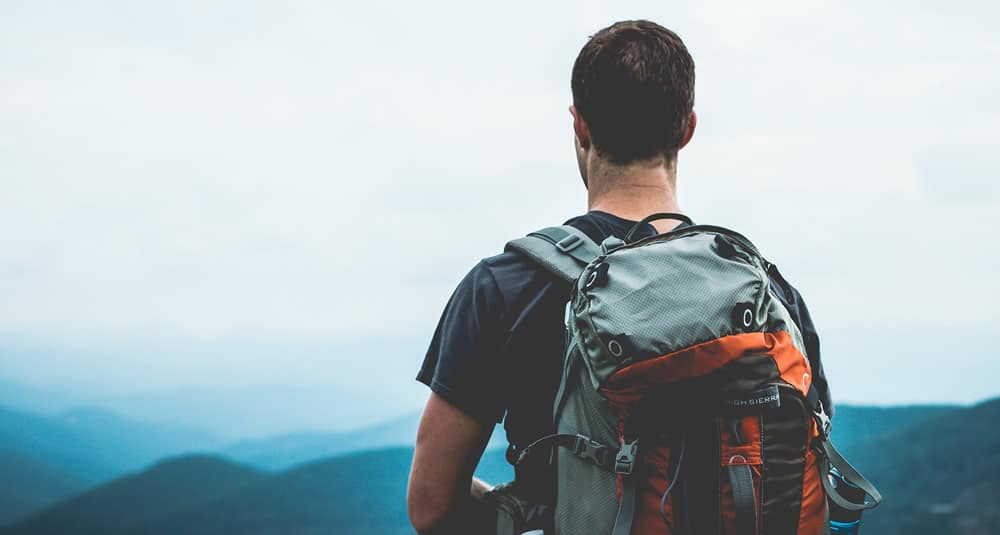The Hiker’s Guide to Greece: How to Prepare and What to Visit
A combination of affordability and natural beauty makes Greece one of the best destinations for pretty much everybody, but if you are an enthusiastic hiker, you will simply love the mountains, valleys and gorges that are seemingly everywhere. Nonetheless, whether you are just starting out or have hiked enough already, it is always wise to go into the heart of nature with some additional info and preparation, which is precisely what we are going to discuss next.
Bring the Right Hiking Shoes
In order to hike and trek in Greece, you need to get breathable shoes for comfortably trekking through the Mediterranean climate. Unfortunately, the market of hiking shoes is saturated with products from both known and unknown brands, which is not necessarily a good thing for beginners in particular, who get even more confused with the amount of choice available. Visit ‘The Adventure Junkies’ webpage which clears out the confusion and suggests the best possible hiking shoes for each kind of terrain and weather condition. Don’t ignore this part, as hiking is basically walking, and your hiking shoes are the only barrier between the harsh terrain and your feet.
Go in with a Group or at Least a Partner
Depending on how experienced or inexperienced you are with hiking, it might be safer to go hiking in Greece with a group, headed by someone who actually knows the area.
Even if you have hiked a lot before, at least one other person (preferably with some experience regarding the region) should be with you. While Greece isn’t the most dangerous place in the world for hikers, any hike has its fair share of risks and dangers, which makes hiking alone a bad idea anywhere.
Hydration is Very Important
The Mediterranean climate can get pretty hot, depending on the time of the year. You need to keep yourself hydrated at all times by taking small gulps from your water bottle every 20 -30 minutes, even when you don’t feel thirsty. Any experienced hiker will tell you that difficult hikes, especially uphill ones can practically lower your blood volume, without you even realizing it before the effects of dehydration have already set in. Since you cannot carry multiple gallons of water for the hike, buy water bottles that come with built-in water purifiers, so that refilling them from the natural streams and lakes is a viable option.
Sunscreen and Sunglasses
If you plan to take the hiking route leading towards the many peaks of the mythical Mount Olympus, you will realize that absolutely gorgeous as the combination of snow, greenery and the sun is, it can be scorching and blinding at the same time!
Bring polarized sunglasses with UV protection to shield your eyes from the glare of the sun both directly, and from the reflected sunlight as well. Additionally, you will need sunscreen to protect your face and any other exposed sections of the skin from a bad Mediterranean sunburn.
Which Ones are Ideal for You?
A lot depends on what kind of an experience you are looking to have, but in general, the following should be on your list of must visit hikes:
The Menalon Trail – This runs for 75km through the center of the Peloponnese, which is divided into eight different sections, ranging from moderate to rugged difficulty levels. Canyons, valleys, harsh mountain terrains, remote and gorgeous villages are a plenty as you go through Gortynia, in Arcadia.
Samaria Gorge Trail (National Park) – This one is a shorter 13-16km hike in Southern Crete. However, it is also one of the most spectacular tracks in Greece, marked by UNESCO as one of the World’s Biosphere Reserves. Aside from the biodiversity and natural wonders of the place, you will come across Byzantine ruins while on the trail, which are awe inspiring.
Mount Athos – This is one of the most remote, spiritual and spectacular hiking routes to take in Greece, but unfortunately, the extremely religious nature of the state doesn’t allow women and children to take the gorgeous trek!
Hike on top of the mythological Mount Olympus instead, and take one of many paths that lead to the fifty-two peaks of the mountain. There are no higher points in Greece than these peaks and the views, scenery, birds and animals are unlike anything you will see anywhere else in the region.
Every country has specific and general rules that hikers and trekkers are expected to follow for both their own safety, and that of the natural environment around them. Keep in mind that although wild camping isn’t exactly legal in Greece, the regulations are not implemented strictly if you stick to the mountain trails. In case you want to hike the National Parks, do not try and go for wild hiking because that’s where you will get in trouble with the authorities.


